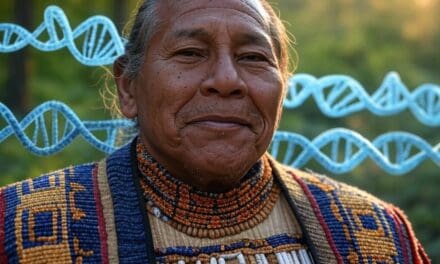The Word of Wisdom, revealed to Joseph Smith in 1833 and recorded in Doctrine and Covenants 89, serves as a health code for Latter-day Saints. It promotes wholesome foods—grains, fruits, vegetables, and meat—while advising that meat be eaten “sparingly” and in times of need, like winter or famine. For modern LDS members considering the carnivore diet or keto diet, which emphasize meat and fats over grains and sugars, these approaches may align with the Word of Wisdom’s intent, especially given today’s health challenges and technological advancements.
Reframing “Sparingly” in a Modern Context
In D&C 89:12–13, the counsel to eat meat “sparingly” is often seen as a call for moderation. Historically, in the 19th century, without refrigeration, slaughtering an animal required quick consumption to avoid waste—a key concern in times of scarcity. “Sparingly” likely meant using meat wisely, without excess. Today, with industrial farming, refrigeration, and freezing, meat can be preserved and consumed efficiently. This removes past logistical limits, supporting a higher-meat diet—like the carnivore diet—without violating stewardship principles. If more meat enhances health without waste, it reflects the Word of Wisdom’s wisdom in using God’s resources responsibly.
The Evolution of Plants and Modern Health Challenges
The Word of Wisdom lauds grains as the “staff of life” and seasonal fruits and vegetables (D&C 89:10–11). Yet, 1833’s plants differ from today’s. Modern agriculture has altered grains, fruits, and vegetables, often boosting sugar and reducing nutrients. Modern wheat, for instance, has more carbs and gluten than ancient einkorn or spelt, while fruits prioritize sweetness over fiber. These shifts may render today’s plants less wholesome than those of Joseph Smith’s era.
Meanwhile, conditions like insulin resistance, type 2 diabetes, and obesity—uncommon in the 19th century—are now widespread. Research ties these to excess carbs and sugars, especially from refined grains. The carnivore diet (all meat) and keto diet (high fat, low carb) avoid these, favoring meat and fats. For Latter-day Saints struggling with modern grains, these diets may improve metabolic health, fulfilling the promise of “health in the navel and marrow in the bones” (D&C 89:18).
Meat as a Nutrient-Dense Option
Meat delivers bioavailable nutrients—protein, B vitamins, iron, zinc, and fats—efficiently. The Word of Wisdom permits meat, moderated by need. In past famines, its density was crucial; today, chronic diseases redefine “need.” For those with insulin resistance or issues from plant antinutrients (e.g., lectins in grains), a meat-heavy carnivore diet offers healing. The keto diet, rich in fats like butter or tallow, provides steady energy without carb spikes, supporting vitality as per D&C 89.
The Spirit of Adaptation in the Word of Wisdom
The Word of Wisdom is a “principle with promise” (D&C 89:2), not a rigid law, allowing adaptation via personal revelation. Latter-day Saints are urged to discern what sustains their bodies—temples of the spirit (1 Corinthians 3:16–17). If a carnivore or keto diet reverses illness, boosts energy, or sharpens clarity—benefits many report—it upholds the goal to “run and not be weary” (D&C 89:20). Health varies, and “wholesome” adapts as science reveals modern diet impacts.
Addressing Potential Counterarguments
Some say excluding grains contradicts the Word of Wisdom, which calls them foundational. But it recommends—not requires—them, to be used “with prudence and thanksgiving” (D&C 89:11). If modern plants harm due to processing or intolerance, avoiding them is prudent. “Sparingly” for meat flexes too—in abundance, it can mean intentional, grateful use, achievable on carnivore or keto diets.
Additional Support from Modern Insights
Science backs this view: keto diets reduce inflammation, enhance brain function, and stabilize energy, echoing Word of Wisdom promises. The carnivore diet cuts plant allergens, aiding chronic conditions. LDS adherents often report spiritual closeness through better health, suggesting harmony with the revelation’s purpose.
Conclusion
For Latter-day Saints, carnivore and keto diets can align with the Word of Wisdom by leveraging technology and tackling modern health shifts. Prioritizing meat and fats over problematic carbs may fulfill its intent: strength, wisdom, and longevity. Personal revelation and improved well-being—serving God better—affirm their fit with this divine code.






